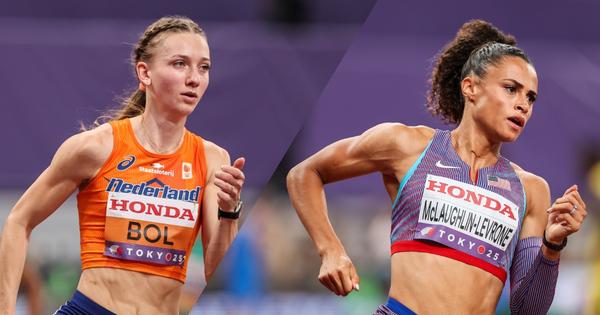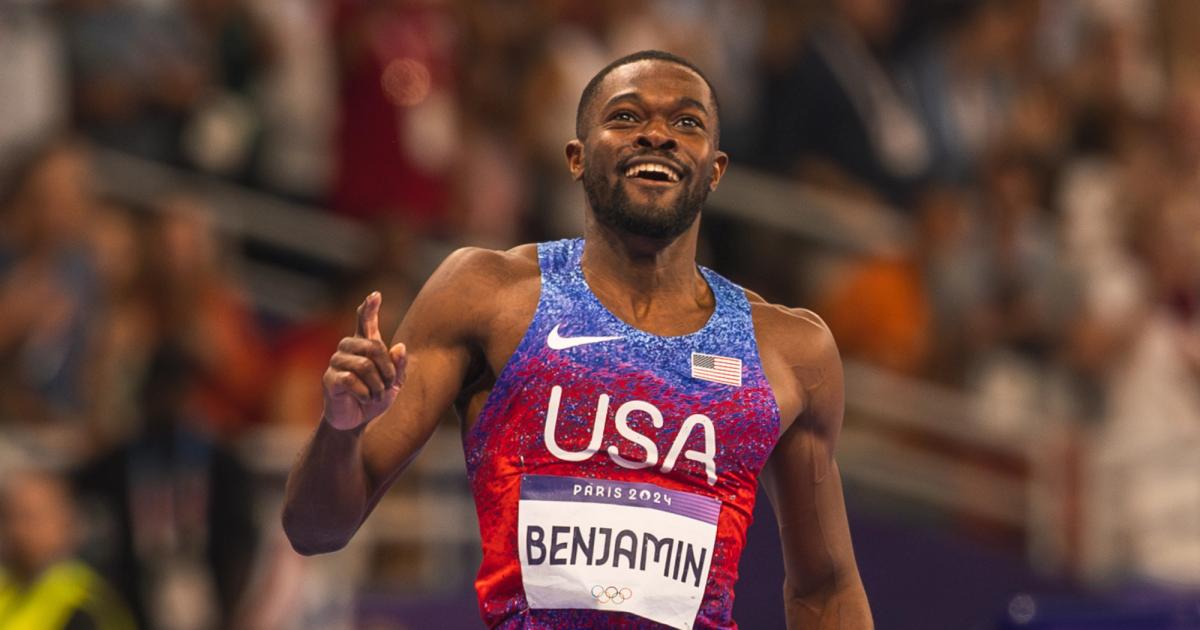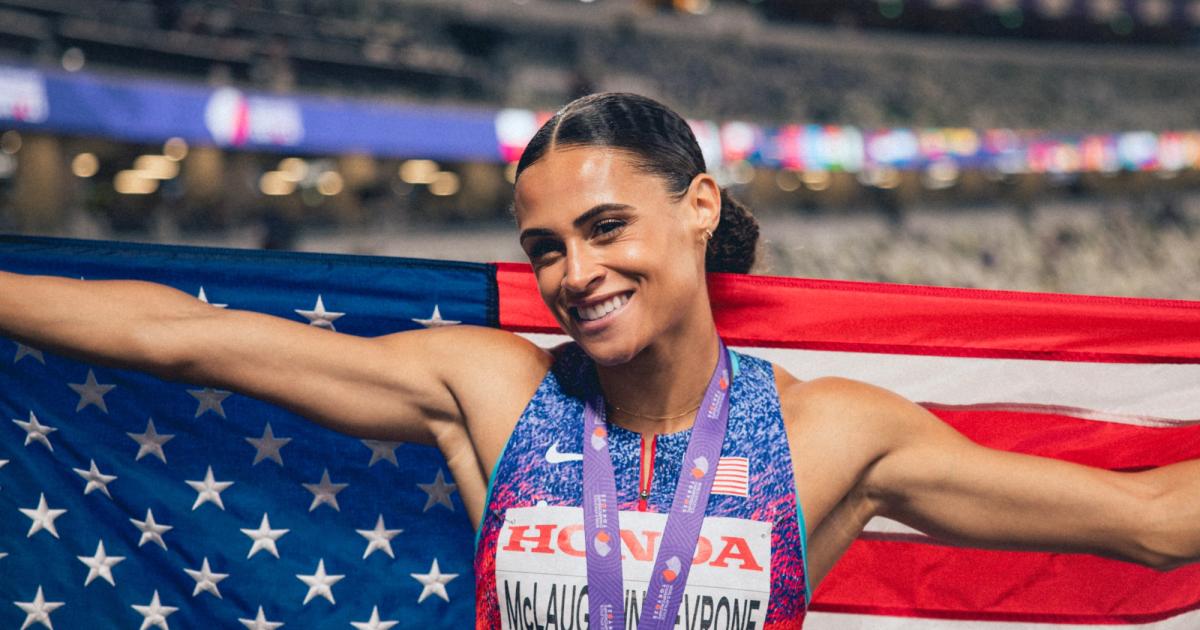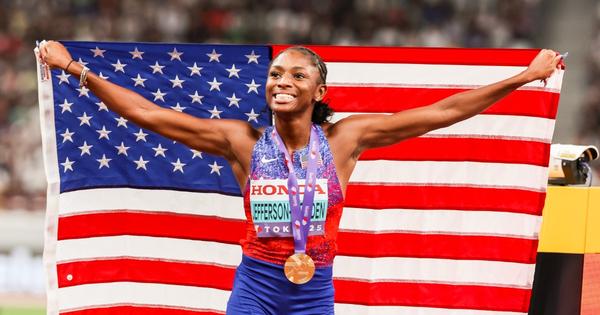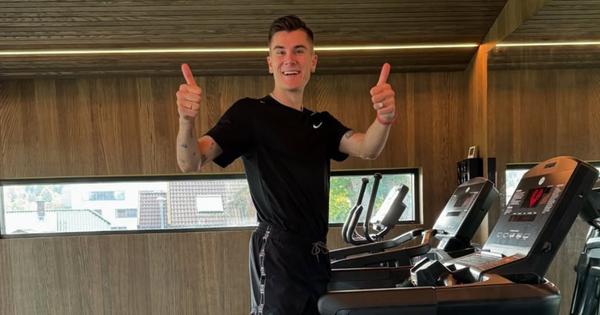By David Melly
November 12, 2025
Whether it’s the Grammy nominations, early Oscar buzz, or yes, even the World Athletics Athlete of the Year Awards, an important part of awards season has officially begun: complaining about disrespectful omissions and careless snubs.
As we noted last week, the finalists for female Athlete of the Year were not what we—or really anyone with half a brain—expected. Triple World champion Melissa Jefferson-Wooden and 5000m world record holder Beatrice Chebet were shut out of the finals entirely, despite Chebet and Faith Kipyegon leading the social media vote. Instead, Sydney McLaughlin-Levrone and Femke Bol were named finalists, who we would argue are the fourth- and fifth-most qualified nominees (out of five).
Bol is particularly confusing. Don’t get us wrong—we’re Femke fan(ke)s here at The Lap Count. But nothing about the season she had really screams “Athlete of the Year.” She defended her World title in the 400m hurdles and picked up silver and bronze relay medals, but three of the other nominees had more World golds and the fourth—Kipyegon—took a gold and silver in two individual events. Two of her fellow nominees set world records in their events and the other two ran all-time top-five marks; Bol’s 51.54 season’s best was her slowest of the last three years. So why did she make the cut?
Three-quarters of the vote tally comes from two places: the World Athletics Council and the ill-defined “World Athletics Family.” The former, which accounts for 50% of the vote, consists of 26 members, eight of whom are European. It’s unfair to say that homerism plays a role here, but it’s worth noting that there is only one American and three Africans on the council. The membership of the World Athletics Family is not published anywhere, but this secretive group gets the same weight in decision-making as the social media vote.
The one thing Bol did that none of her fellow nominees did was make the trip to Zurich and win her fifth consecutive Diamond League final. Jefferson-Wooden, notably, was one of the big stars of Grand Slam Track in the spring and only competed in three of the Diamond League’s nine official 100m races. Last year, we asked the question “what does the Athlete of the Year say about this sport?” and this year, Bol’s inclusion as a finalist sends a clear message to athletes and fans alike: WA wants you to take the Diamond League final more seriously than any other non-championship meet.
Another recurring theme from the Athlete of the Year finalists pointed out by our friend Paul Hof-Mahoney is that throwers fared poorly across the board. Three nominees in the men’s and women’s Field Athlete of the Year categories were throwers; none proceeded to the final round. The most frustrating of those omissions was Valarie Allman, who won her first World title in the discus, completed her second straight undefeated season, and accounted for eight of the ten longest throws in the world this year.
Maybe it’s because Allman snubbed the Diamond League? Guess again. The 30-year-old won five of the six Diamond League discus competitions, including the final. In all likelihood, her exclusion was the result of a desire for regional equity, as fellow American Tara Davis-Woodhall was named a finalist alongside Australian Nicola Olyslagers. Olyslagers had a great season, winning World indoor and outdoor titles and going 6-3 against rival Yaroslava Mahuchikh. But Allman and Davis-Woodhall both won every competition they entered, and both picked up World titles, too. And in Allman’s case, she can’t be penalized for skipping World Indoors because the discus isn’t contested. So why should Val be punished simply because another member of Team USA had an equally impressive season?
The Canadian hammer throwers, of course, got no love either. Camryn Rogers and Ethan Katzberg have both been two of the most dominant athletes in their event the last two seasons, but we already know that World Athletics doesn’t care about the hammer throw as they excised it entirely from the Diamond League circuit. It would be nice to show them a little compensatory love in the awards season instead, but alas, here we are.
It’s harder to argue there were big snubs in men’s Track Athlete of the Year simply because the competition was much closer. No one really had a truly dominant season, and as a result there’s a fair argument to be made for any of the five nominees, with Noah Lyles and Emmanuel Wanyonyi being named finalists. If and when Lyles is named the winner, there will surely be a strong and highly-entertaining reaction from Jamaican Twitter.
The last notable choice among the finalists is the inclusion of Maria Perez, the double race walk champion from Spain, as a finalist for the women’s clumsily-named “Out of Stadium” award. World Athletics opted to name two marathoners on the men’s side (Sabastian Sawe and Alphonce Simbu), but presumably in an effort to get us all to take race walking more seriously, nominated Perez over the likes of Tigst Assefa and Sifan Hassan. Hassan was 2024’s Athlete of the Year, so hopefully she won’t be too devastated to miss this year’s trip to Monaco, but it does seem like she deserves the recognition for being a team player and lending her name, clout, and legs to three World Majors, including the newest addition in Sydney.
With the finalists named, the decision is up to the fans* (*those that have a registered World Athletics+ account and voted within the six-day window). Of course, WA never publishes final vote totals or public results, so a cynic may suggest that the eventual winners could easily be just as strategic and political as the finalists themselves. An even bigger cynic would argue that the entire awards system is just a way to stay in the news during a dead period in the track and field calendar.
But given the governing body’s indomitable ability to direct resources and shape the narrative of the sport, it’s worth watching closely to know where exactly they’re trying to take us.
One way or another, we’ll find out on November 30th.
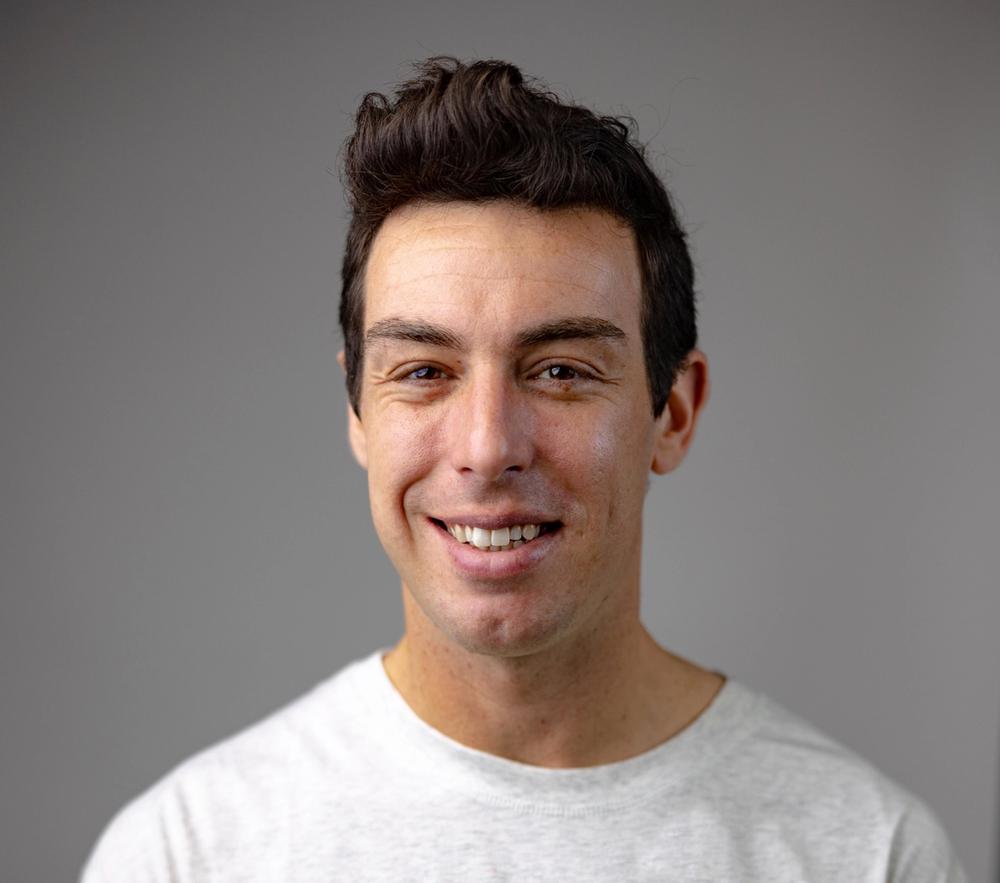
David Melly
David began contributing to CITIUS in 2018, and quickly cemented himself as an integral part of the team thanks to his quick wit, hot takes, undying love for the sport and willingness to get yelled at online.
